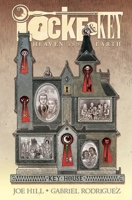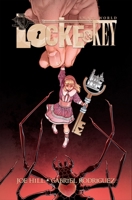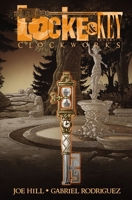Locke & Key, Master Edition Volume Two
(Part of the Locke & Key Series, Locke & Key: Keys to the Kingdom Series, and Locke & Key: Crown of Shadows Series)
Select Format
Select Condition 
You Might Also Enjoy
Book Overview
Now a Netflix Original Series Named a "modern masterpiece" by The A.V. Club, the crticially-acclaimed series Locke & Key takes on new life in a reformatted hardcover collection. Volume 2 features the third and fourth L&K arcs, Crown of Shadows and Keys to the Kingdom, with all-new cover art and design by co-creator Gabriel Rodriguez.
Format:Hardcover
Language:English
ISBN:1631403745
ISBN13:9781631403743
Release Date:April 2016
Publisher:IDW Publishing
Length:312 Pages
Weight:2.60 lbs.
Dimensions:0.9" x 7.3" x 11.1"
Age Range:13 to 16 years
Grade Range:Grades 8 to 11
Related Subjects
Contemporary Fiction Humor Humor & Entertainment Literature & Fiction Suspense ThrillersCustomer Reviews
2 customer ratings | 2 reviews
There are currently no reviews. Be the first to review this work.







































